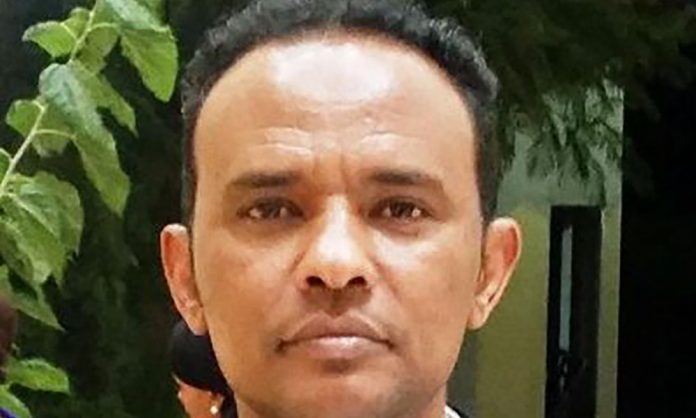The push by Somaliland for international recognition and reinstatement of its sovereignty since 1991 has had strong legal backing despite the international community disinclined.
History has broadly depicted enough evidence that Somaliland’s political case is neither new to African political history nor has it threatened regional peace, security, and political stability.
There are three outstanding questions that the people of Somaliland have raised: Why Ethiopia – Eritrea became two independent states in the pursuit of Sudan and South Sudan separation in contemporary African political history? How had the Africa state emerged or constructed on today’s attainment of de jure state? Is the Somaliland case a miracle or misunderstood by peace-loving and democratic nations?
First, Ethiopia – Eritrea and Sudan – South Sudan have made a lasting peace accord of two-state solution recognized by the African Union in 1993 and 2011, respectively.
In contrast, Somaliland and Somalia’s political dispute is more open than the above cases, considering how politically and legally they merged and how they separated, how it progressed from tyranny to a genocidal situation, disavowing and oppressing the people of Somaliland for thirty years.
Second, indigenous Africans were never consulted or involved in the partitioning of the continent. We all inherited it from the European colonizers. These de jure borders accompanied with the introduction of the modern state without the consent of our grassroot societies, traditional leaders, and intellectuals.
Before 1884, Africans lived in a free land. During the partitioning, Somalis who share some aspects as culture, religion, and ethnicity were partitioned by Europeans into five- Somaliland British Protectorate, Italian Somalia, French Somaliland, Somaliland Ethiopia region, and the Somali Northern Frontier District in Kenya.
Third, manifesting its rationality, Somaliland’s political case is not extraordinary, is neither a mystery nor antagonistic to the regional and international peace, security, and economic development. Somaliland’s contribution to these areas is commendable because it has become a trusted and competent partner to these regional and international issues.
The Somaliland British Protectorate formed through Treaties between the United Kingdom and various clans lived in this territory which was named the ‘land of Punt’ between 1884-1887 following international treaties that the United Kingdom entered on behalf of the Somaliland Protectorate which defined and demarcated the de jure boundaries of Somaliland.
These Treaties were the Anglo-French treaty 1888, the British-Italian Protocol between 1891 and 1894, the Anglo-Ethiopian Treaty of 1897.
Therefore, considering this historical account, one cannot conceive that Somaliland’s case is alien to regional and international fora, blocs, and organizations. The groundless propaganda and fallacy news against this history of the Republic of Somaliland is not only reckless but imprudent in the way that the international broadcasting headlines call Somaliland as a breakaway or secessionist region, which are not right terms.
In other words, the truths and aspirations of the people of Somaliland cannot be spoiled through a thoughtless agenda of attempting to erroneously rewrite the lapsed history of a ‘greater Somali Republic again.
This brief analysis testifies that Somaliland’s case of restoration of its sovereignty is justified politically, legally, and historically. The recent Djibouti-sponsored summit on June 15-17, 2020 between Somaliland and Somalia enlarged and deepened understanding of the international community’s mindset and regional leaders who participated in this summit.
Indeed, this Djibouti meeting was the beginning of the international community to broker the dialogue between Somaliland and Somalia; the US and EU were the main actors that shuttled this new round of dialogue apart from Turkey facilitated rounds of dialogue lasted in 2015.
During the summit, the media reported that the Somaliland delegation was both more prepared and articulated in contrast to the Somalia delegation, and this is because of Somaliland’s case is truthful and accurate while the Somalia delegation has no counter-argument and their proposal of reunification is worthless and insensitive to the historical blunders and current realities.
The envious propaganda and rumors disseminated against the ingenuity of the Somaliland political case will no longer be offensive to the future of 6 million people in Somaliland because their rights of political dreams are legitimate and immutable. Somaliland’s interest and its future are only represented by their democratically elected leaders and the people’s aspiration that foster regional prospects, peace, and security.
According to the international law perspective on state-making rights and duties, the political case of Somaliland is binding, genuine, credible, and outright. For example, the Montevideo Convention on the Rights and Duties of States in 1933 laid down the founding principles of being a sovereign state.
Somaliland fulfilled the duties of the international law which the first article of this convention delivers: ‘the state as a person of international law should possess a permanent population, a defined territory a government and capacity to enter into relations with other states’.
On the other hand, the International Covenant on Civil and Political Rights that the United Nations General Assembly adopted in 1966 reaffirmed for the following: ‘All peoples have the right of self-determination. By virtue of that right, they freely determine their political status and freely pursue their economic, social, and cultural development’.
The United Nations Charter reiterated that for the benefit of ‘international peace,’ the rights of self-determination of the peoples should contribute to international peace. Therefore, there are no rational, legal, and political grounds that can prevent these international aspects of peoples’ rights to freely administer their political system in which Somaliland people now are rendering.
In the African Union perspective on Somaliland’s legal and political case, the AU fact-finding mission in 2005 acknowledged and clarified that: Somaliland and Somalia did not ratify their merger of 1960, the Siyad Barre regime committed genocidal acts against the people of Somaliland and in terms of borders, the AU discovered and redefined legal existence that Somaliland borders stemmed from the above stated International Treaties and that are in line with the OAU/AU resolutions on the matter such as the Cairo Consultative meeting of 1964.
In this regard, the AU confirmed that the Republic of Somaliland is not subject to opening Pandora’s Box, which means that Somaliland’s territorial integrity and borders are not delineating new areas or threatening to the existing borders on either Somalia side or other neighboring countries.
The pattern of Somaliland’s political and state-building processes is inspiring and deserves rewarding from the region, the continent, and beyond.
Somaliland‘s case of restoring sovereignty is instrumental to the fate of peace regionally and internationally. Somaliland state-building is the most successful political project in post-colonial history in Africa due to its bottom-up conception which is locally driven, locally financed, locally constructed, and proven not in the trap of externally led failed state-building projects in many parts of Africa.
Mohamed A. Mohamoud – Barawani is an Independent Researcher, political analysis based in Hargeysa, Somaliland.
Source: busiweek.com































